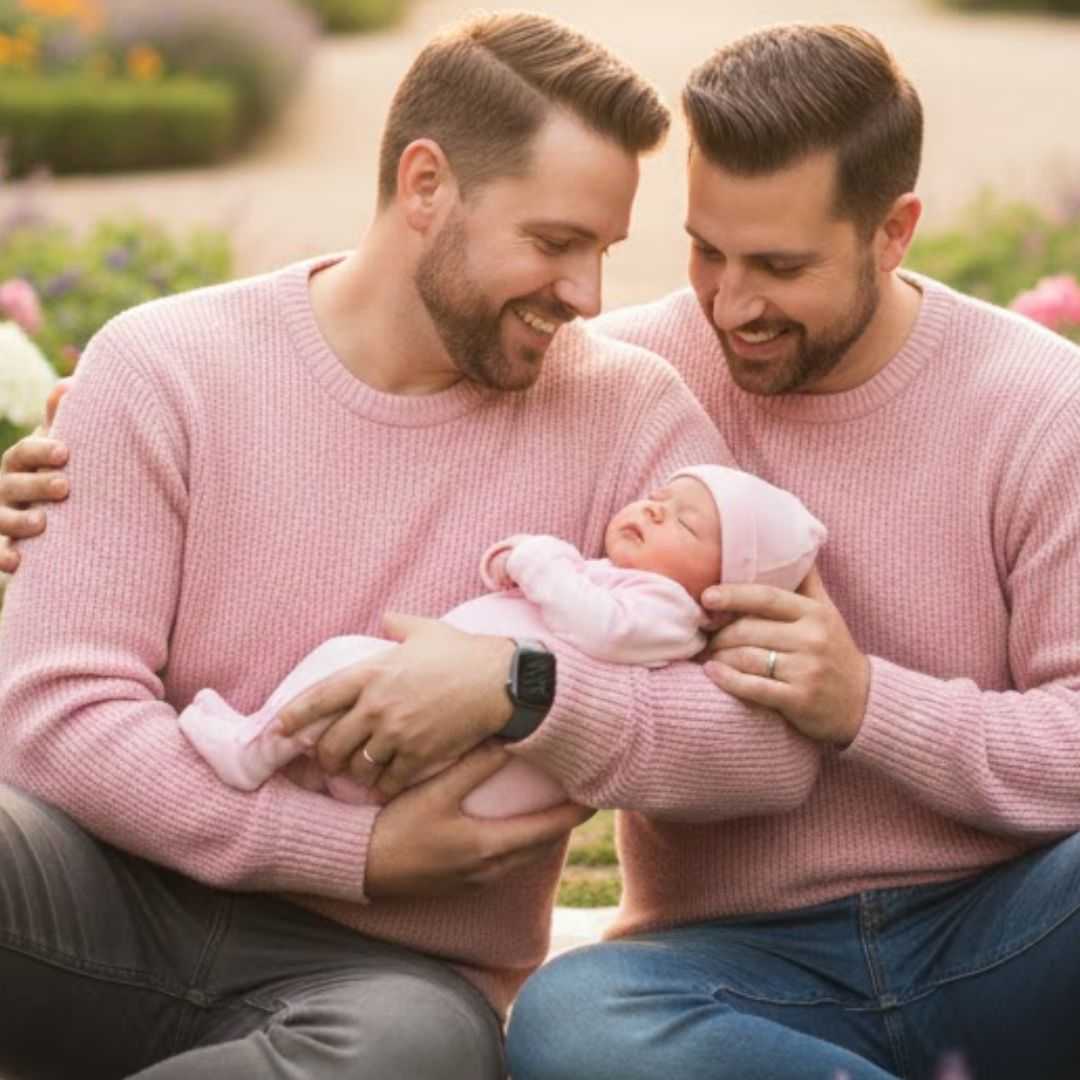
Reclaim Vitality: Advanced Geriatric Cardiovascular Rehabilitation for Seniors Abroad
Navigating the journey of aging can sometimes bring unexpected health challenges, especially concerning the heart. For many seniors, a cardiac event like a heart attack, heart surgery, or living with chronic heart conditions can significantly impact their independence and quality of life. This is where Geriatric Cardiovascular Rehabilitation steps in – a specialized, compassionate program designed to help older adults regain their strength, manage their condition, and rediscover the joy of an active life.
Imagine your heart as a well-loved car; after years of faithful service, it might need a tune-up or repair. Geriatric cardiac rehabilitation is that expert service station, providing a holistic approach to recovery and preventive care. It’s not just about physical exercises; it encompasses a broad spectrum of care including nutritional guidance, stress management techniques, medication optimization, and ongoing education to empower both patients and their families. This personalized approach acknowledges the unique needs and complexities that come with treating heart conditions in older adults, ensuring a safer and more effective path to recovery.
For families seeking the best care, sometimes looking beyond borders opens up a world of possibilities. Medical tourism for geriatric cardiovascular rehabilitation offers access to state-of-the-art facilities, highly skilled medical professionals, and often more affordable, comprehensive programs. Whether it's to reduce "cardiac fatigue after heart attack," find "specialized heart rehab for seniors," or explore "affordable cardiac recovery abroad," understanding this vital branch of medicine can be the first step towards a healthier, more vibrant future for your loved one.
What is geriatric cardiovascular rehabilitation and why is it crucial for older adults?
Geriatric cardiovascular rehabilitation is a specialized, medically supervised program designed specifically for older adults who have experienced a heart attack, heart surgery (like bypass or valve replacement), heart failure, or other heart conditions. It's crucial because seniors often have unique needs, including multiple health conditions (comorbidities), reduced physical reserves, and specific medication considerations. This rehabilitation focuses on:
- Improving Heart Health: Strengthening the heart and lungs through safe, monitored exercise.
- Enhancing Physical Function: Increasing stamina, strength, and balance, which are vital for daily activities and preventing falls.
- Managing Symptoms: Reducing chest pain, shortness of breath, and fatigue.
- Reducing Risk Factors: Addressing high blood pressure, cholesterol, diabetes, and obesity through lifestyle changes.
- Emotional Well-being: Providing support to cope with the emotional impact of heart disease.
- Education: Empowering patients and families with knowledge about heart health, medications, and lifestyle adjustments.
Without such targeted rehabilitation, older adults face a higher risk of recurrent cardiac events, diminished quality of life, and increased dependency. It's about giving them the tools and support to live as fully and independently as possible.
What symptoms and conditions indicate a senior needs cardiovascular rehabilitation?
Recognizing the signs that an older adult could benefit from cardiac rehabilitation is key. Here are common symptoms and conditions:
- Post-Myocardial Infarction (Heart Attack): Any senior who has recently suffered a heart attack is a prime candidate.
- After Heart Surgery: This includes bypass surgery (CABG), valve replacement or repair, angioplasty, or stent placement.
- Heart Failure: Persistent shortness of breath, swelling in legs, and fatigue, even with mild exertion.
- Angina: Chest pain or discomfort, often triggered by physical activity or stress.
- Peripheral Artery Disease (PAD): Pain in the legs when walking (claudication).
- Chronic Stable Angina: Ongoing chest pain despite medication.
- Reduced Exercise Tolerance: Feeling tired or winded easily during routine activities, often searched as "why do I get tired so easily after heart surgery."
- Persistent Fatigue: Unexplained tiredness that impacts daily life, which can be a sign of underlying heart issues.
These indicators suggest the heart isn't functioning optimally, and a structured rehabilitation program can help mitigate further decline and improve existing symptoms.
What causes heart conditions in older adults, and how does rehabilitation address these risk factors?
The development of heart conditions in older adults is a complex interplay of several factors:
- Aging: Arteries naturally stiffen, and the heart muscle can become less efficient over time.
- High Blood Pressure (Hypertension): Chronic high pressure damages artery walls, leading to atherosclerosis.
- High Cholesterol (Hyperlipidemia): Excess "bad" cholesterol (LDL) contributes to plaque buildup in arteries.
- Diabetes: High blood sugar levels damage blood vessels and nerves controlling the heart.
- Obesity: Increases the workload on the heart and contributes to other risk factors.
- Smoking: Severely damages blood vessels and significantly increases heart disease risk.
- Physical Inactivity: Contributes to obesity, high blood pressure, and poor cholesterol levels.
- Unhealthy Diet: High intake of saturated fats, sodium, and sugar contributes to cardiovascular issues.
- Stress: Chronic stress can elevate blood pressure and promote unhealthy behaviors.
Geriatric cardiovascular rehabilitation tackles these risk factors head-on:
- Exercise Training: Improves blood pressure, cholesterol, blood sugar, and weight.
- Nutritional Counseling: Guides patients towards heart-healthy diets low in sodium, unhealthy fats, and processed foods.
- Medication Management: Ensures proper use of prescribed drugs to control blood pressure, cholesterol, and blood sugar.
- Stress Management: Teaches techniques like meditation or deep breathing to reduce stress.
- Education: Empowers patients to make informed choices about their lifestyle, understanding the impact of "lifestyle changes for elderly heart health."
What specific types of rehabilitation therapies are included in geriatric cardiovascular programs?
A comprehensive geriatric cardiovascular rehabilitation program is multifaceted, addressing the whole person:
- Medically Supervised Exercise Training: This is the cornerstone. It includes:
- Aerobic Exercise: Activities like walking, cycling, or swimming, carefully monitored for heart rate and blood pressure.
- Strength Training: Using light weights or resistance bands to improve muscle strength, essential for daily tasks and mobility.
- Flexibility and Balance Exercises: To prevent falls and improve range of motion, crucial for "fall prevention in elderly with heart disease."
- Nutritional Counseling: Registered dietitians provide personalized advice on heart-healthy eating plans, portion control, and managing conditions like diabetes or high cholesterol.
- Education on Heart Health: Sessions on understanding heart disease, reading food labels, managing medications, and recognizing warning signs.
- Stress Management: Techniques such as relaxation exercises, mindfulness, and coping strategies to reduce the impact of stress on the heart.
- Psychological Support: Counseling for depression, anxiety, or fear often associated with heart disease, helping patients "cope with anxiety after heart attack."
- Smoking Cessation: Support and resources for those looking to quit smoking.
These therapies are carefully coordinated by a team of cardiologists, rehabilitation physicians, nurses, exercise physiologists, dietitians, and psychologists.
Who is eligible for geriatric cardiac rehabilitation, and when should seniors consider it?
Most older adults with a cardiac history can benefit from rehabilitation. Common eligibility criteria include:
- Recent heart attack (myocardial infarction).
- Coronary artery bypass graft (CABG) surgery.
- Heart valve repair or replacement.
- Percutaneous coronary intervention (PCI), such as angioplasty or stent placement.
- Heart transplant.
- Chronic heart failure.
- Stable angina (chest pain).
- Other qualifying heart conditions as determined by a cardiologist.
When to Consider It: It's best to start geriatric cardiac rehabilitation as soon as a senior is medically stable, often within 1-4 weeks after a heart event or surgery. Early referral is linked to better outcomes. Discussing it with their cardiologist or primary care physician is the first step. They can assess specific needs and provide a referral. Don't wait until complications arise; proactive rehabilitation can prevent them.
What can seniors expect during recovery, and what is the typical timeline for geriatric cardiac rehab?
Recovery in geriatric cardiac rehabilitation is a journey, not a race. Here’s what seniors and their families can generally expect:
- Personalized Pace: Programs are tailored, respecting individual capabilities, existing health conditions, and energy levels. Progress is often gradual.
- Phased Approach:
- Phase 1 (Inpatient): Begins while still in the hospital after a cardiac event or surgery. Focuses on light activity, risk factor education, and preparing for discharge.
- Phase 2 (Outpatient): The main component, typically lasting 6-12 weeks, with 2-3 sessions per week. This involves supervised exercise, education, and counseling.
- Phase 3 (Maintenance): An optional, ongoing program where patients continue independent exercise, often in a community setting, to maintain gains.
- Improved Function: Over time, seniors will notice increased energy, reduced symptoms, better balance, and greater ease with daily activities like walking, climbing stairs, and carrying groceries.
- Enhanced Knowledge: A deeper understanding of their condition, medications, and how to make heart-healthy choices.
- Emotional Support: Reduced anxiety and depression, and improved confidence in managing their health.
While Phase 2 usually lasts 6-12 weeks (12-36 sessions), the benefits are lifelong, emphasizing sustainable lifestyle changes. Patients often ask, "how long does it take to recover after open heart surgery for seniors?" The active rehab phase is crucial, but full recovery and adaptation to a new healthy lifestyle continue well beyond.
Are there any risks or potential side effects associated with cardiovascular rehabilitation for older patients?
It's natural to have concerns about any medical program, especially for older adults. However, geriatric cardiovascular rehabilitation is remarkably safe. The primary reason is the constant medical supervision and individualized approach:
- Low Risk of Cardiac Events: While any exercise carries a minimal risk, the supervised setting of cardiac rehab significantly mitigates this. Patients' heart rate, blood pressure, and oxygen saturation are continuously monitored. Exercise is immediately adjusted if any adverse signs appear.
- Muscle Soreness or Fatigue: Common minor side effects, especially when starting a new exercise regimen. These usually subside as the body adapts.
- Joint Pain: Older adults may experience joint discomfort. Therapists are trained to modify exercises to protect joints and recommend appropriate stretches or supports.
- Overexertion: Due to careful monitoring, overexertion is rare. Patients are taught to recognize their body's signals and communicate any discomfort.
The benefits of participating in a supervised program far outweigh these minimal risks, particularly compared to the risks associated with an inactive lifestyle post-cardiac event. It's like learning to swim with a lifeguard; the risk is present, but expertly managed. Questions like "is cardiac rehab safe for elderly?" are well-addressed by the safety protocols in place.
How much does geriatric cardiovascular rehabilitation cost globally, and where can I find affordable options?
The cost of comprehensive geriatric cardiovascular rehabilitation can vary significantly depending on the country, the length of the program, the types of therapies included, and the facility's reputation. Here's a general comparison (these are estimates and can fluctuate):
| Country/Region | Estimated Cost Range (Outpatient, 6-12 weeks) | Notes |
|---|---|---|
| United States | $5,000 - $15,000+ | High quality, but often highest costs without comprehensive insurance. "Cost of cardiac rehab in USA." |
| Western Europe (e.g., UK, Germany) | $4,000 - $10,000 | Excellent standards, but can still be costly for international patients. |
| India | $1,500 - $4,000 | Significant savings, highly skilled doctors, JCI-accredited hospitals. "Affordable cardiac rehab India." |
| Turkey | $2,000 - $4,500 | Modern facilities, competitive pricing, often includes accommodation packages. |
| Mexico | $2,000 - $5,000 | Proximity for North Americans, good quality, and lower costs. |
| Thailand | $2,500 - $5,500 | Known for excellent patient care, luxurious facilities, and comprehensive packages. |
For those seeking affordable and high-quality options, countries like India, Turkey, Mexico, and Thailand have emerged as leading destinations for medical tourism. They offer cutting-edge medical technology, internationally trained specialists, and patient-centered care at a fraction of the cost found in Western nations.
Why should families consider geriatric cardiovascular rehabilitation abroad for their elderly loved one?
Choosing to seek medical care abroad for an elderly loved one can be a big decision, but it comes with several compelling advantages:
- Cost-Effectiveness: As seen in the table above, the savings can be substantial, making life-changing rehabilitation accessible without financial strain. This is a primary driver for "affordable senior cardiac rehab overseas."
- Access to Specialized Programs: Some international centers offer highly specialized or integrated programs that might not be readily available or as comprehensive in one's home country, especially for geriatric-specific needs.
- Reduced Wait Times: In many countries, waiting lists for rehabilitation services can be long. Traveling abroad often allows for quicker access to necessary care.
- State-of-the-Art Facilities: Many leading medical tourism destinations boast hospitals and clinics with the latest technology and modern amenities, specifically designed for comfort and recovery.
- Expert Medical Professionals: You'll often find doctors and therapists trained in leading Western medical institutions, offering world-class expertise.
- Integrated Care and Recovery Environment: Some destinations offer rehabilitation in resort-like settings, combining medical care with a tranquil environment conducive to healing and stress reduction.
- Privacy and Anonymity: For some, the privacy offered by seeking treatment away from home is an appealing factor.
Ultimately, it's about finding the best possible care for your loved one, and sometimes that care is best accessed beyond your local borders.
How can I ensure the safety and quality of geriatric cardiovascular rehabilitation programs when traveling abroad?
Ensuring safety and quality is paramount when considering medical treatment abroad. Here’s a checklist to guide you:
- Accreditation: Look for international accreditations like Joint Commission International (JCI), ISO, or local government health ministry approvals. These signify adherence to stringent quality and safety standards.
- Physician Credentials: Verify the qualifications, experience, and certifications of the cardiologists, rehabilitation doctors, and therapists. Many top international doctors have trained in the US, UK, or Europe.
- Facility Standards: Research the clinic's or hospital's infrastructure, technology, hygiene protocols, and dedicated geriatric care units. Are their facilities specifically equipped for "elderly cardiac care abroad"?
- Patient Testimonials and Reviews: Seek out genuine reviews and success stories from previous international patients. Ask for references if possible.
- Transparent Communication: Ensure clear, open communication channels with the medical team. Do they offer translation services? Are your questions answered thoroughly?
- Comprehensive Packages: A reputable facility or facilitator will provide a clear breakdown of what's included in the cost (treatment, accommodation, transport, follow-up).
- Medical Tourism Facilitators: Companies like PlacidWay specialize in connecting patients with accredited, high-quality international providers. They vet facilities, handle logistics, and provide invaluable support, acting as your guide in the complex world of "medical tourism for seniors."
- Pre-Travel Consultation: Insist on a thorough consultation with the international medical team before travel to ensure they fully understand the patient's medical history and needs.
Take the Next Step with PlacidWay
Ready to explore treatment options abroad? Discover top clinics, compare prices, and get a free quote tailored to your needs with PlacidWay.
Rehabilitation and Medical Spa Treatment





.png)
.png)
.png)
.png)

Share this listing